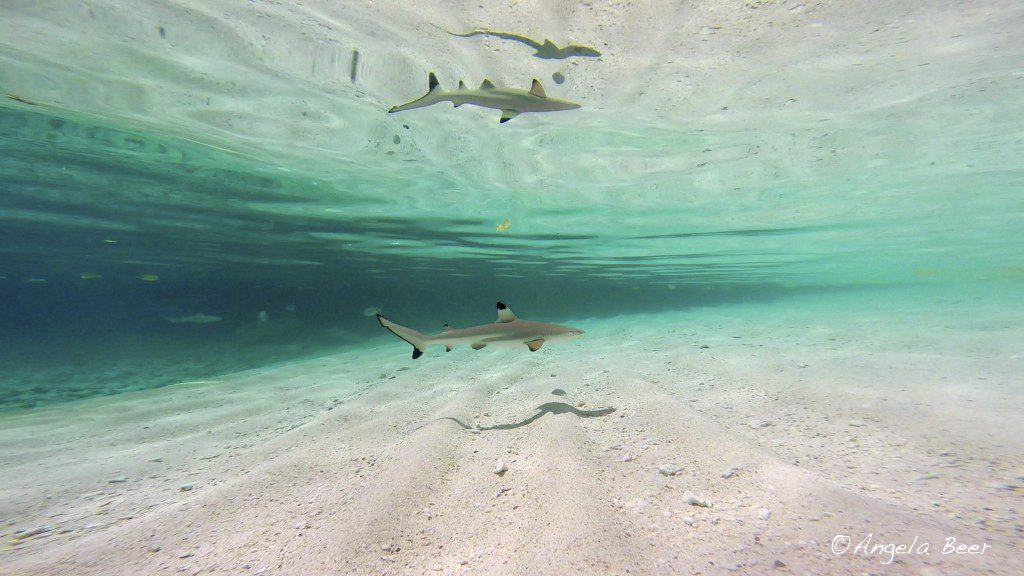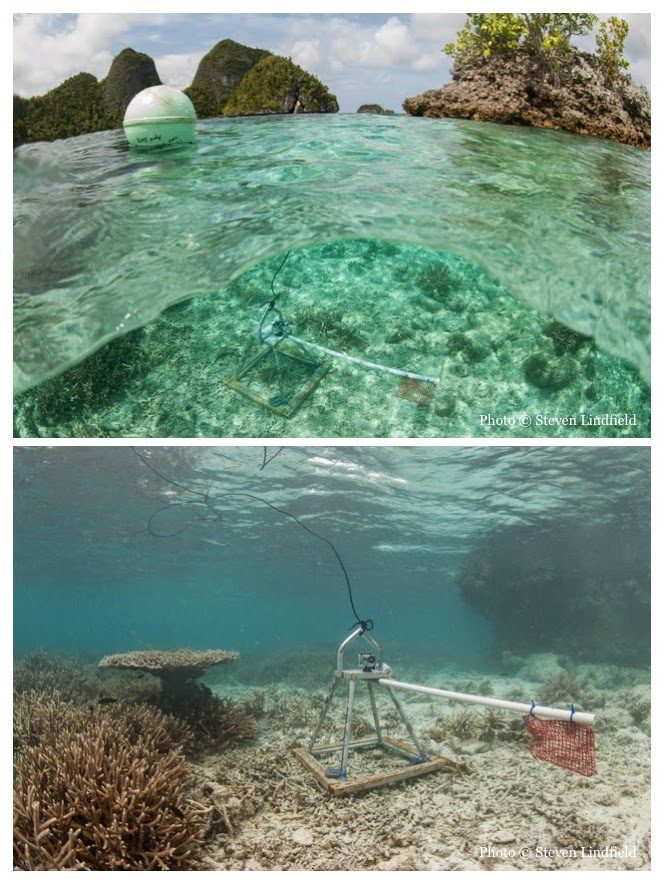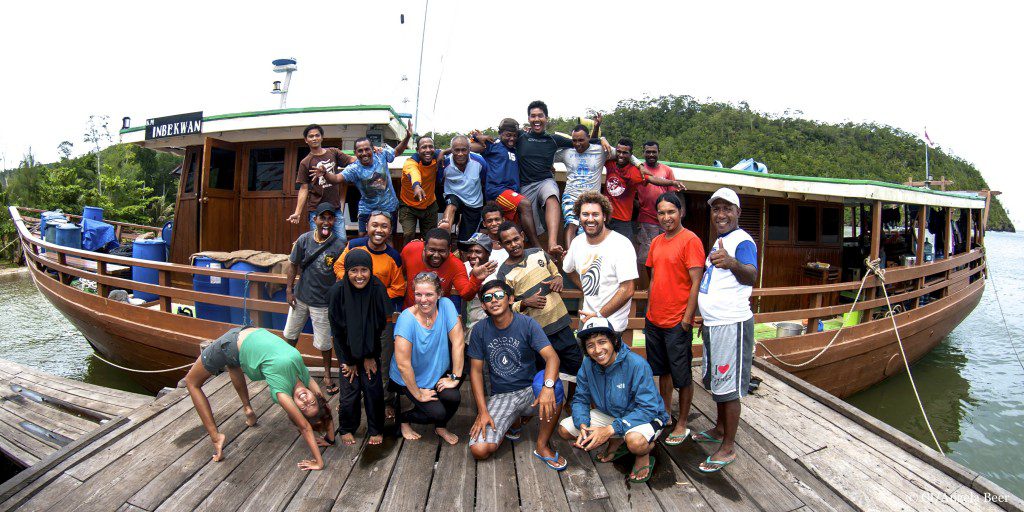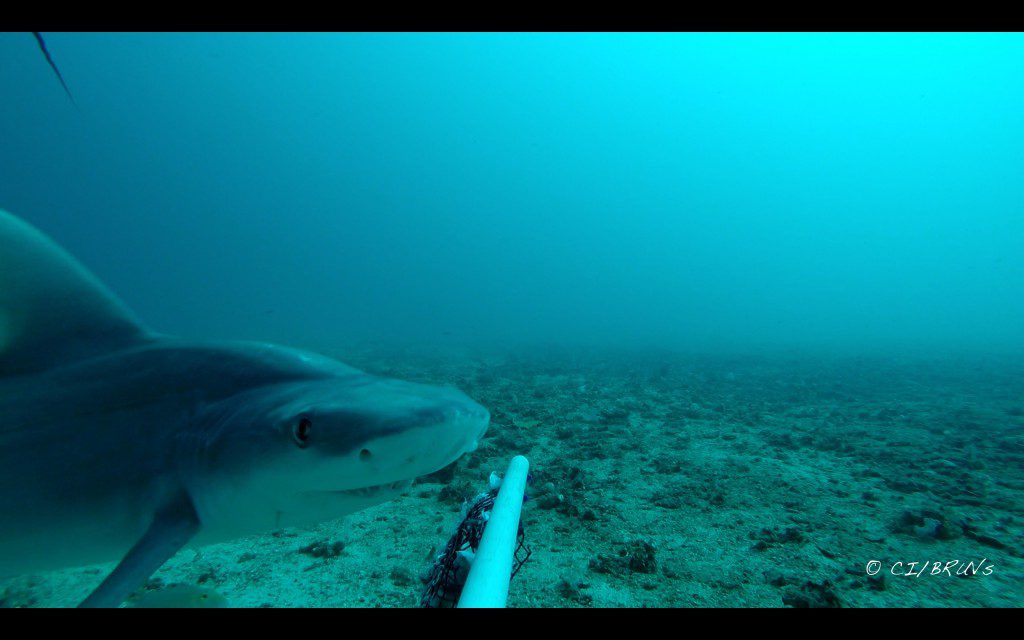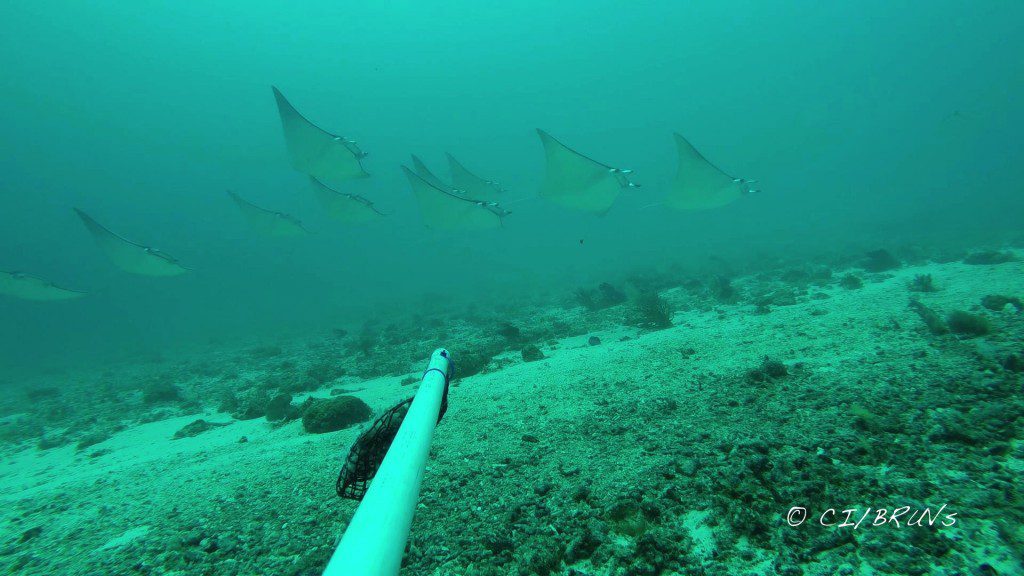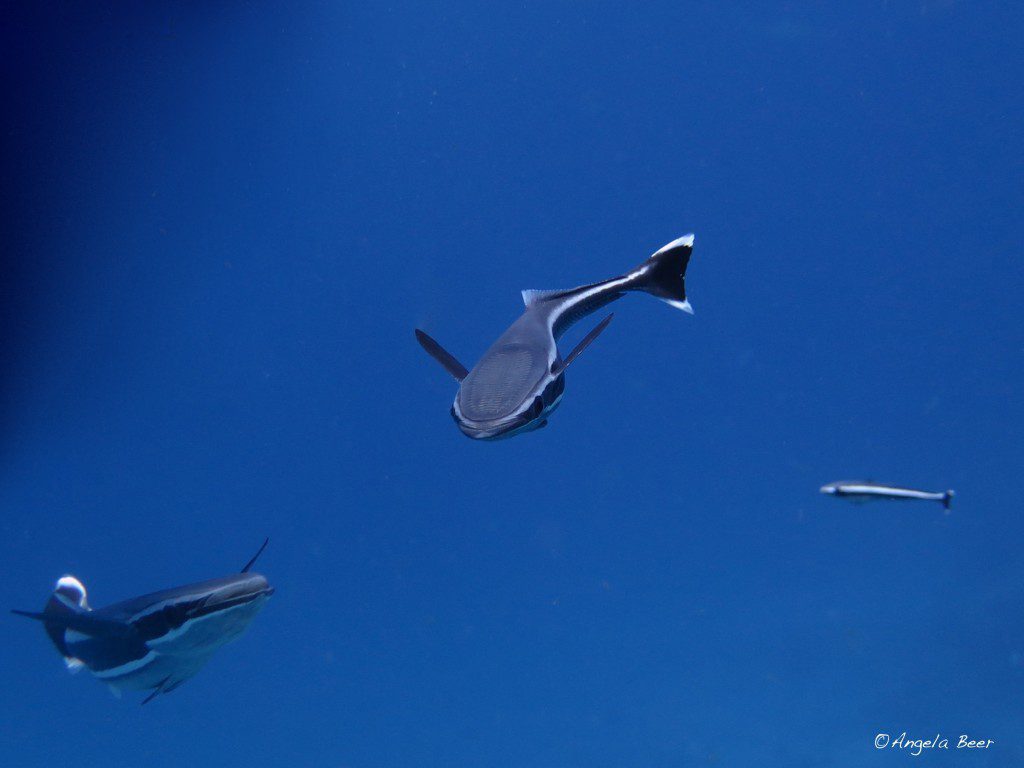Marine Life & Conservation
BRUVs Shark Research in Raja Ampat
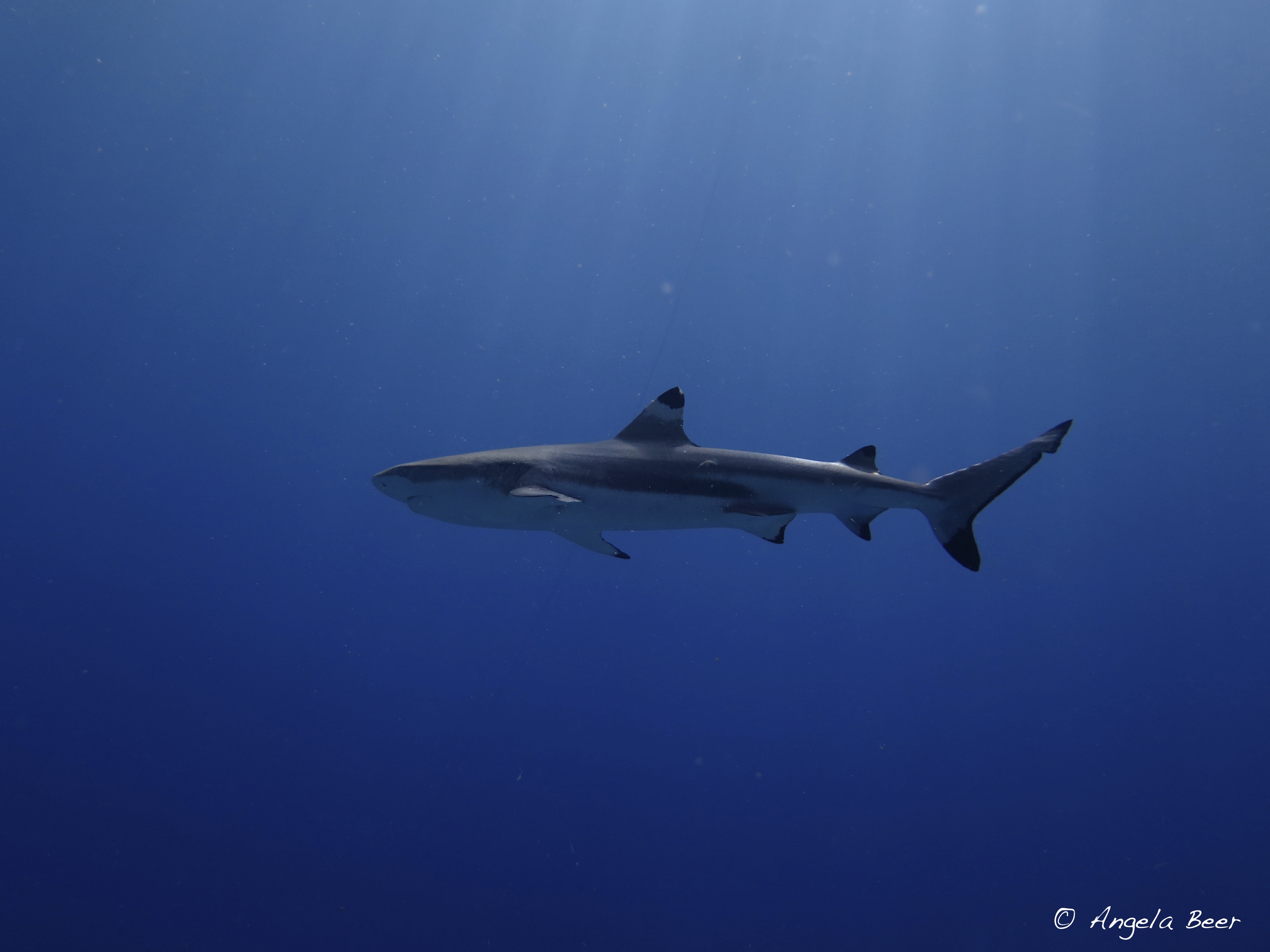
Conservation International (CI)’s Mark Erdmann previously blogged about the Bird’s Head Seascape surpassing the milestone of 1750 reef fish species recorded, leaving no doubt as to where the global heart of marine biodiversity lies. The remote tropical islands of Raja Ampat, West Papua, are the epicenter of this marine richness, and may be a haven for shark diversity in particular – That’s what we’re in the process of finding out with Conservation International’s science and monitoring team, through an innovative shark research program.
Sharks are ancient animals and are important for healthy oceans, yet they are threatened with extinction. The people of Raja Ampat traditionally live harmoniously with nature, but outside threats are encroaching. Guardians of their natural heritage, local people, supported by international partner organizations CI and TNC, set up Marine Protected Areas (MPAs) for conservation (Watch a tribute to the “Guardians of Raja Ampat”). Additionally, in 2012 the local government declared the entire region an official “Shark Sanctuary” through a law that protects all sharks and rays, as well as other charismatic key species, such as dugong, sea turtles and endemic species. This was a positive step in recognizing the benefits of healthy elasmobranch (cartilaginous fish, such as sharks and rays) populations for local communities, both economically and ecologically.
These management initiatives, combined with effective patrol & enforcement, and understanding shark populations, should help locals manage MPAs to protect these charismatic species, thus helping improve food security and alternative livelihoods through tourism. The mantanomics are sound, and the revenue that could be brought in by shark tourism is probably comparable.
We are working to complete the final stage of a study to assess the current status of shark populations in the Raja Ampat archipelago – and will be making a second bid on collecting the data for the final piece of the puzzle, working together with Misool Eco Resort in the spring!
Research uses BRUVs (Baited Remote Underwater Video) to analyze shark diversity and relative abundance between no-take and fished sites over depth gradients. This study provides baseline data to enable assessment of the impact of management efforts related to Patrol & Enforcement, and Outreach & Education, of both the Marine Protected Areas (MPAs) and the Shark Sanctuary as a whole throughout Raja Ampat.
The first field data collection trip was a great collaboration where we learned a lot and ultimately went exceedingly well. Despite many challenges, including rough weather and wild sea conditions, the disciplined, hard-working team completed monitoring at Wayag MPA, Dampier MPA and the Fam Islands. GoPro cameras were submerged in shallow, medium and deep waters at a minimum distance of 500m from one another, and left to record for one hour. In 15 days of surveying we successfully completed 470 camera drops – two more trips got the tally up to almost 1000, now including Ayau, Kofiau and Mayalibit Bay MPAs as well!
Although completing data analysis is taking longer than anticipated, preliminary reviews suggest that approximately 50% of the videos captured contain images of sharks. At least nine different species of shark were recorded, including the common black- and white-tip and grey reef sharks, tawny nurse shark, banded bamboo shark, and an exciting first for Raja Ampat (and thus a +1 for the Raja Ampat species count), Hemipristis elongata, more commonly known as the “Snaggle-toothed shark”.
In addition to the sharks, many other interesting and unexpected appearances on camera included mantas, mobulas, eagle rays, golden cow-nosed rays, turtles, spanner crabs and moray eels. We were disappointed to catch many remora without hosts on camera… and have come up with a new slogan for a “Shark Savers”campaign: Save the Sharks – the ramoras are getting lonely!
Onboard CI’s research vessel, the team also hosted the well-known TV presenter Riyanni Djangkaru and her Trans7 TV crew for two days, while they filmed our activities. Riyanni is actively supporting the nation-wide Save Sharks campaign, and we hope her effort to document the BRUV project in Raja Ampat will raise awareness throughout the country and be a positive force in the larger-scale shark conservation efforts.
Indonesia has the largest shark fishery in the world and is thus an important place to focus shark research and conservation efforts. The more we know about these cool, ancient animals, the better we can protect them. We hope that data from these surveys will help the campaign to protect sharks on a national level – much the same way we were able to convince the government to pass national legislation to protect manta rays a year ago.
Say CHEESE, Sharkies!!!
To view the project video click here: VIDEO
This project was a joint initiative between Conservation International (CI), the Raja Ampat government, RRU (Royal Roads University) and NSERC (The Canadian National Science and Engineering Research Council), in collaboration with Raja Ampat Research and Conservation Centre, Misool Eco Resort and Baseftin Foundation, local communities and with support from Walton Family Foundation, Allchin family’s Sunbridge Foundation, the Friend family’s Nicole Friend Memorial Trust. For a complete list see credits at end of video.
Blogs
The Ocean Cleanup Breaks 10,000,000 KG Barrier

The Ocean Cleanup, the global non-profit project, has removed a verified all-time total of ten million kilograms (22 million lbs.) of trash from oceans and rivers around the world – approximately the same weight as the Eiffel Tower.
To complete its mission of ridding the oceans of plastic, The Ocean Cleanup uses a dual strategy: cleaning up the Great Pacific Garbage Patch (GPGP) to remove the plastic already afloat in the oceans, while stopping the flow of plastic from the world’s most polluting rivers.
Through cleaning operations in the GPGP and in rivers in eight countries, the cumulative total of trash removed has now surpassed ten million kilograms. This milestone demonstrates the acceleration of The Ocean Cleanup’s impact, while underlining the astonishing scale of the plastic pollution problem and the need for continued support and action.
While encouraging for the mission, this milestone is only a staging point: millions more tons of plastic still pollute our oceans and The Ocean Cleanup intends to continue learning, improving and innovating to solve this global catastrophe.
This announcement comes as governments from around the world meet to continue negotiations to develop a new legally binding instrument to end plastic pollution at INC4 in Ottawa, Canada. Representatives of The Ocean Cleanup will be in attendance and the organization will be urging decision-makers to collaborate towards a comprehensive and ambitious global treaty which addresses plastic at all stages of its life cycle and in all marine environments worldwide, including in areas beyond national jurisdiction.
It is encouraging to see that the need for remediation is reflected in the various options for potential treaty provisions. It is essential that the final treaty contains clear targets for the remediation of legacy plastic pollution, and reduction of riverine plastic emissions.
Tackling plastic pollution requires innovative and impactful solutions. The treaty should therefore incentivize the innovation ecosystem by fostering innovations that make maximal use of data, technology and scientific knowledge – such as those designed and deployed by The Ocean Cleanup.
‘After many tough years of trial and error, it’s amazing to see our work is starting to pay off – and I am proud of the team who has brought us to this point.’ said Boyan Slat, Founder and CEO of The Ocean Cleanup. ‘While we still have a long way to go, our recent successes fill us with renewed confidence that the oceans can be cleaned.’
The Ocean Cleanup was founded in 2013 and captured its first plastic in 2019, with the first confirmed catch in the GPGP coming soon after the deployment of Interceptor 001 in Jakarta, Indonesia. After surpassing one million kilograms of trash removed in early 2022, the non-profit project has since progressed to the third iteration of its GPGP cleaning solution, known as System 03, and a network of Interceptors currently covering rivers in eight countries, with more deployments set for 2024.
About The Ocean Cleanup
The Ocean Cleanup is an international non-profit organization that develops and scales technologies to rid the world’s oceans of plastic. They aim to achieve this goal through a dual strategy: stemming the inflow via rivers and cleaning up the legacy plastic that has already accumulated in the ocean. For the latter, The Ocean Cleanup develops large-scale systems to efficiently concentrate the plastic for periodic removal. This plastic is tracked and traced through DNV’s chain of custody model to certify claims of origin when recycling it into new products. To curb the tide via rivers, The Ocean Cleanup has developed Interceptor™ solutions to halt and extract riverine plastic before it reaches the ocean. Founded in 2013 by Boyan Slat, The Ocean Cleanup now employs a broadly multi-disciplined team of approximately 140. The foundation is headquartered in Rotterdam, the Netherlands.
For more information, visit: theoceancleanup.com and follow @theoceancleanup on social media.
Marine Life & Conservation
Steve Backshall to headline Shark Trust’s flagship event: For the Love of Sharks

Join a host of amazing, shark loving, speakers including Steve Backshall and the Shark Trust team for an evening celebrating shark conservation at the Royal Geographical Society in London this November.
Date: 29th November 2024
Time: 6-10pm
Location: Royal Geographical Society, London
Tickets: https://www.sharktrust.org/Event/flos24
The event will be a celebration of all things shark. Those lucky enough to get hold of tickets will hear from engaging guest speakers with a passion for sharks.
The line-up includes (*subject to change if unforeseen circumstances arise)
Steve Backshall: One of television’s busiest presenters, BAFTA award-winning wildlife expert Steve has been passionate about the wild world ever since he was young.
Steve’s impressive TV career has taken him all around the world, investigating a wide array of species and environments. Steve has filmed over 100 hours of children’s wildlife programmes with the BAFTA award winning Deadly 60 franchise and recently, with Sky Nature, for his new series ‘Whale with Steve Backshall’. He has been a patron for the Shark Trust for 10 years.
Simon Rogerson: is a photojournalist specialising in natural history, diving and the sea.
He is editor of SCUBA magazine, the official journal of the British Sub-Aqua Club. Simon started his career as a crime reporter but gravitated towards his ‘less depressing’ interest in underwater exploration, joining the staff of DIVE magazine in 1999. In 2005 he was named ‘Editor of the Year’ in the PPA’s Independent Publishing Awards. Simon also works as a freelance writer, contributing frequently to the Sunday Times and Telegraph, in addition to BBC Wildlife, Esquire, and a host of international diving magazines. He is the author of a book, Dive Red Sea, published by Ultimate Sports. Now based in Berkshire, Simon has been a Patron of the Shark Trust for 20 years.
More speakers to be announced soon. Head to the Shark Trust website to learn more.
The evening will also allow guests the final chance to see the Oceanic 31, shark art exhibition. Some of the artwork will be auctioned/raffled at the event, while the rest will be auctioned online to raise money for the Shark Trust Oceanic Programme.
For the Love of Sharks is an evening with something for everyone who is interested and fascinated by sharks. Join the Shark Trust, their Patrons, Trustees and Staff, along with a host of supporters for this celebration of shark conservation.
For more information or to buy a ticket: https://www.sharktrust.org/Event/flos24
-

 News3 months ago
News3 months agoCapturing Critters in Lembeh Underwater Photography Workshop 2024: Event Roundup
-

 Marine Life & Conservation Blogs3 months ago
Marine Life & Conservation Blogs3 months agoCreature Feature: Swell Sharks
-

 Blogs2 months ago
Blogs2 months agoMurex Resorts: Passport to Paradise!
-

 Gear Reviews3 weeks ago
Gear Reviews3 weeks agoGEAR REVIEW – Revolutionising Diving Comfort: The Sharkskin T2 Chillproof Suit
-

 Blogs2 months ago
Blogs2 months agoDiver Discovering Whale Skeletons Beneath Ice Judged World’s Best Underwater Photograph
-

 Gear Reviews3 months ago
Gear Reviews3 months agoGear Review: Oceanic+ Dive Housing for iPhone
-

 News2 months ago
News2 months agoPADI Teams Up with Wellness Brand Neuro to Drive Ocean Change and Create a Blue State of Mind
-

 Marine Life & Conservation2 months ago
Marine Life & Conservation2 months agoSave the Manatee Club launches brand new webcams at Silver Springs State Park, Florida


